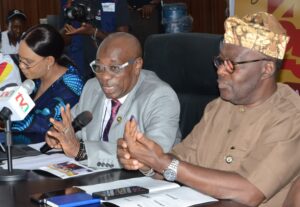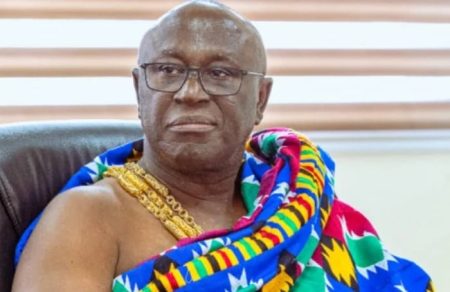The Federal Government of Nigeria, under the leadership of the Minister of Humanitarian Affairs and Poverty Reduction, Professor Nentawe Yilwatda, has embarked on a significant expansion of its social welfare program, the Conditional Cash Transfer (CCT). This initiative, designed to alleviate poverty and improve the living conditions of vulnerable Nigerians, has witnessed a dramatic increase in the number of beneficiaries in recent months. While only two million Nigerians benefited from the program over the previous nine years, an average of one million people per month have received support in the past six months, bringing the total to six million beneficiaries. This represents a threefold increase in the annual reach of the program, demonstrating a renewed commitment to addressing poverty across the nation.
The remarkable surge in beneficiary numbers can be attributed to a revamped approach adopted by the Ministry of Humanitarian Affairs and Poverty Reduction. This new strategy focuses on digitization and enhanced verification processes to ensure greater efficiency and transparency. The ministry is actively digitizing all households listed in the social register, providing them with digital identities and e-wallet accounts. This streamlined system facilitates direct cash disbursements, minimizing delays and potential leakages. Furthermore, the ministry has undertaken a thorough cleansing of the social register, removing erroneous entries and ensuring that only eligible individuals receive support. This rigorous verification process, involving physical checks and digital identification, has significantly enhanced the accuracy and effectiveness of the CCT program.
The President’s commitment to expanding the reach of the CCT program is evident in the ambitious target set for October – to enroll 15 million households in the program within nine months. This underlines the government’s dedication to poverty reduction and its recognition of the urgent need to support vulnerable populations. The accelerated disbursement of funds, directed by the President, will expedite the delivery of financial assistance to those in need, providing timely relief and contributing to improved livelihoods. The scale of this undertaking signifies a substantial investment in the well-being of Nigerian citizens and reflects a proactive approach to tackling poverty.
To ensure transparency and accountability, the ministry engaged the World Bank to conduct an independent verification of the program’s beneficiaries. This external audit assessed the accuracy of the disbursement process and validated the eligibility of the recipients. Following the disbursement of funds to the initial four million beneficiaries, the World Bank’s findings confirmed that the funds reached the intended recipients listed on the social register. The verification team employed rigorous methods, including home visits, and successfully met 96 percent of the beneficiaries in person. The remaining four percent, residing in inaccessible areas or having migrated due to security concerns, could not be physically verified. This independent verification underscores the credibility of the program and reinforces public trust in the government’s commitment to equitable distribution of resources.
Beyond the CCT program, the Ministry of Humanitarian Affairs and Poverty Reduction is also investing in youth empowerment through the Skills-to-Wealth (S2W) program. This initiative focuses on equipping young Nigerians with valuable skills in key sectors driving economic growth – agriculture, renewable energy, and automobile. By providing training and resources in these critical areas, the S2W program aims to enhance employability, foster entrepreneurship, and contribute to sustainable development. This strategic focus aligns with the government’s broader economic diversification agenda and recognizes the importance of investing in human capital to drive long-term prosperity. The S2W program represents a proactive approach to addressing youth unemployment and empowering the next generation to actively participate in the national economy.
In conclusion, the Federal Government’s intensified efforts towards poverty reduction and youth empowerment signal a significant step towards building a more inclusive and prosperous Nigeria. The expansion of the CCT program, coupled with the introduction of the S2W initiative, demonstrates a comprehensive approach to addressing social and economic challenges. By leveraging technology, enhancing transparency, and prioritizing human capital development, the government is laying the groundwork for sustainable progress and improved living standards for all Nigerians. These initiatives represent a renewed commitment to social welfare and economic empowerment, aiming to create opportunities for all citizens and build a more resilient and equitable society.













